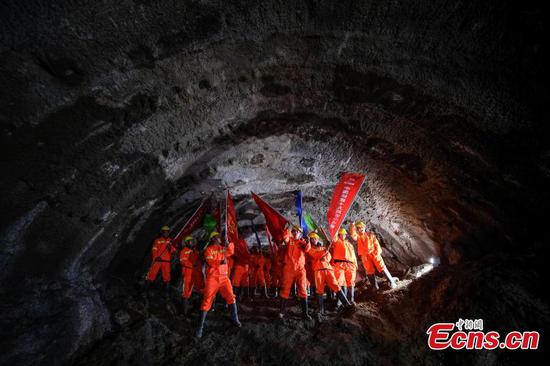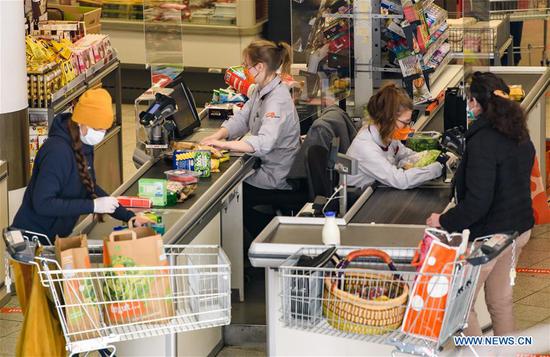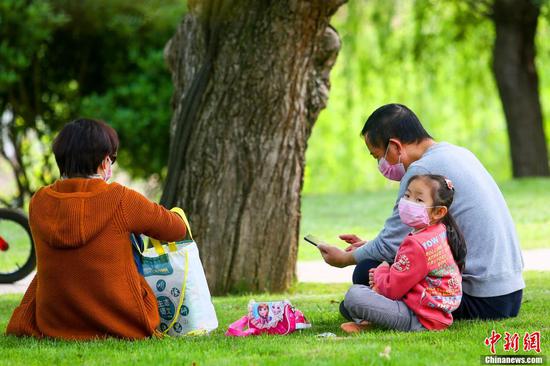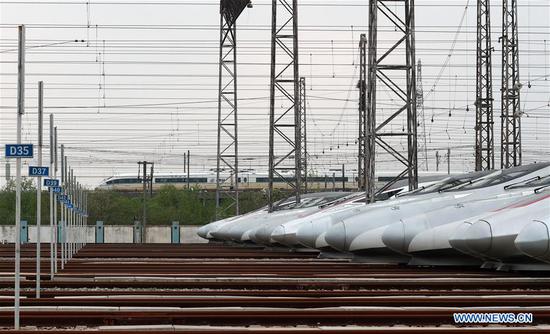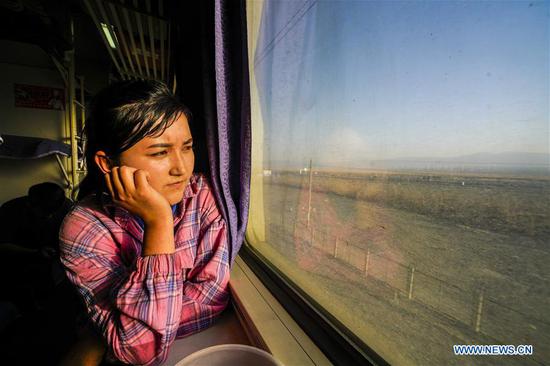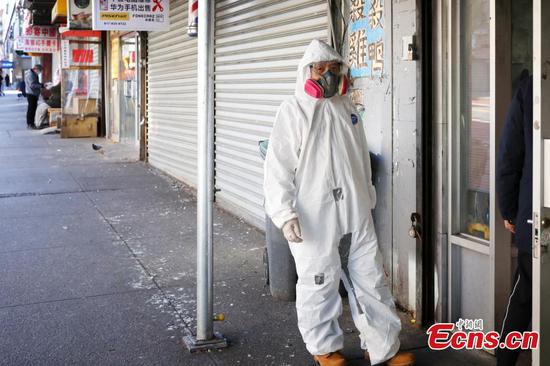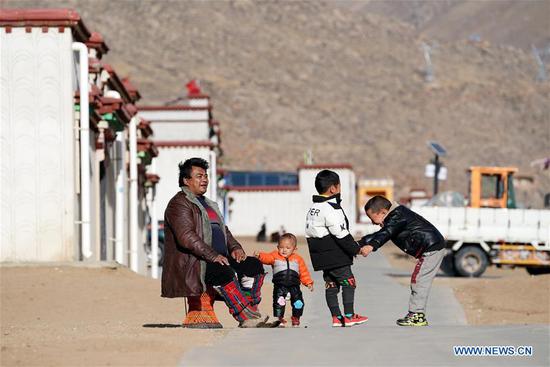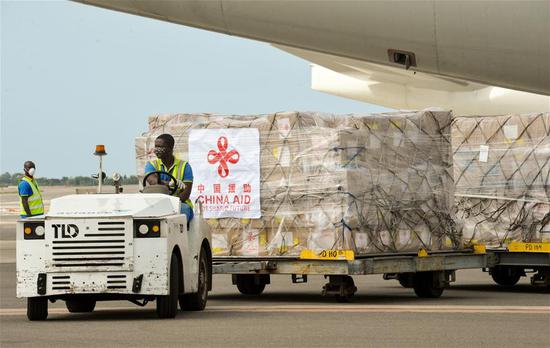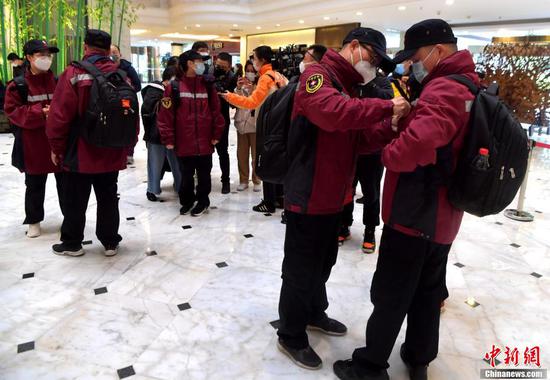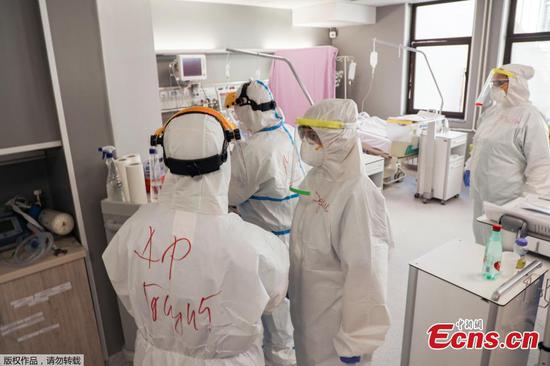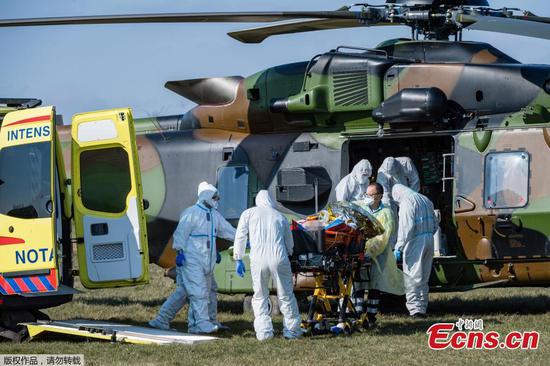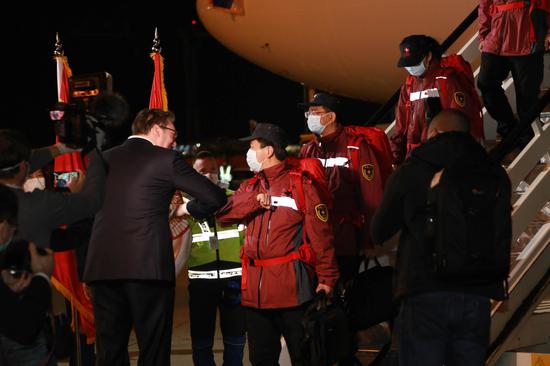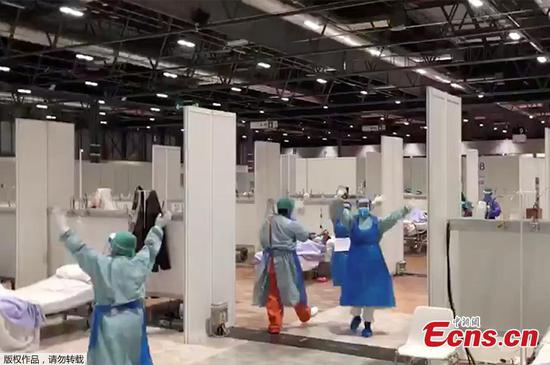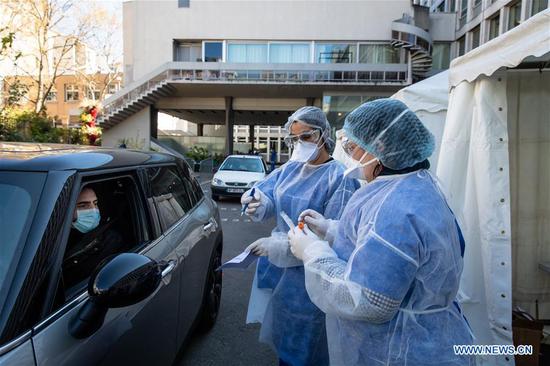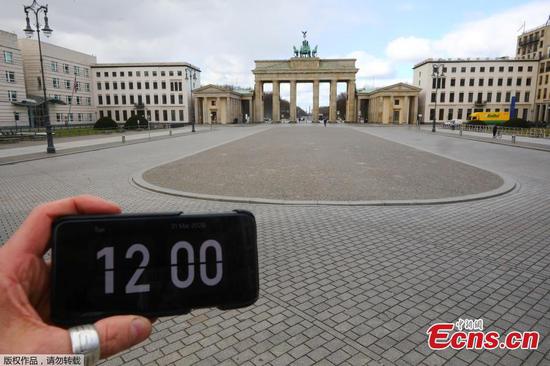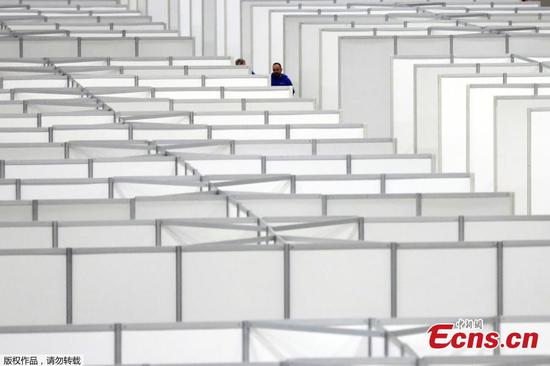As the world is struggling to curb the spread of COVID-19, Israeli experts have said that the pandemic is a common threat to humankind, and global cooperation is needed to prevail over the borderless virus.
As of Monday, a total of more than 1 million cases have been reported with almost 63,000 deaths, according to the World Health Organization (WHO).
Although countries have adopted measures such as closure of their borders, the virus has still quickly spread among nations, haunting more than 200 countries and regions.
"Public health is a common good and COVID-19 makes no discrimination. This is a global fight against a common invisible enemy," said Dr. George N. Tzogopoulos, a research associate at Bar-Ilan University's Begin-Sadat Center for Strategic Studies, and a senior fellow at the European Institute of Nice and the Democritus University of Thrace.
But in recent years, several countries have turned inward, backing down from international engagement.
As the United States scaled down its contributions to international organizations and adopted an "America First" policy, the price of this decision has not been fully exposed yet. Coupled with a lackluster response from a less than cohesive European Union, it appears the power division on the global stage is being re-arranged.
"Over the last few years, irresponsible politicians in various parts of the world have deliberately undermined trust in international cooperation," said Professor Yuval Noah Harari, a historian with the Hebrew University of Jerusalem and a bestselling author with the book "Sapiens: a Brief History of Humankind."
"Unfortunately, due to the lack of leadership, we are not making the most of our ability to cooperate," said Harari.
Harari told Xinhua that there are several ways in which cooperation can be enhanced -- countries that have already coped with the pandemic should share their information; production of medical equipment should be coordinated between countries; doctors and nurses from less affected countries should be sent to those places that are hard hit; and a global economic safety net should be created.
"Data from all over the world should be shared openly and speedily in an effort to contain the epidemic and develop medicines and vaccines," said Harari. "Global coordination can overcome bottlenecks in production, and can make sure that the equipment goes to the countries that need it most."
Technology has also played a key role in the increasingly globalized world to tackle the pandemic.
"Our interconnected nature allows us to share information and tools, among them what we have found so far as the best way to fight the virus," said Dr. Yonatan Freeman from the Political Science Department at Hebrew University of Jerusalem. "This gives us an advantage that during other pandemics in history we did not have."
"Social media also allows the general public to take part in this fight," Freeman told Xinhua.
When the virus first hit China and its influence was unknown, it was unclear how it would weather the storm. But months later, China has successfully controlled the spread of the virus.
Some experts have said that China's position has been solidified, and further enhanced by helping other countries fight the pandemic.
A timeline of China's response to COVID-19 was released Monday, chronicling some main facts and measures that China has taken in the global joint anti-virus efforts, including timely releasing information, sharing experience in epidemic prevention and control, and advancing international exchanges and cooperation.
"China has shown it has been responsible," said Freeman. "They are using the event to show they have been transparent and that they have done what they have done not just for their own good, but for the world's good."
As Chinese industries gradually return to normal levels of production, the huge force could be critical for countries who are now at the peak of the virus outbreak and are struggling to cope.
According to Israel's leading airline El Al, an Israeli aircraft carrying 20 tons of medical equipment from China landed Monday at Ben Gurion International Airport. The aircraft is the first of 11 El Al planes to bring essential medical equipment to Israel as part of efforts in the fight against the pandemic.
"China can not only take a leading role in producing the necessary equipment, but also make sure it is distributed fairly," said Harari, adding that "I hope China continues to do this and even intensifies its efforts."
"The Chinese experience on prevention, control management, diagnosis, treatment and nursing is very useful for other countries. As far as the provided medical assistance is concerned, it is appreciated at very difficult time," Tzogopoulos told Xinhua.
"It is one way for China to show that it is able to project power," Freeman told Xinhua. "Even if the situation abroad is deteriorating, China will not turn a blind eye."










